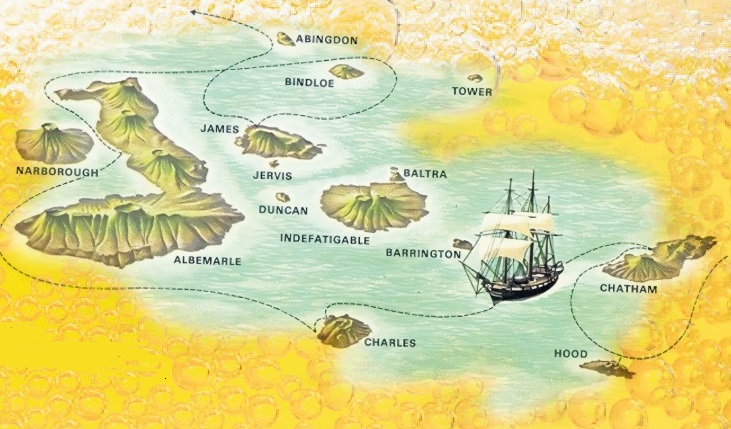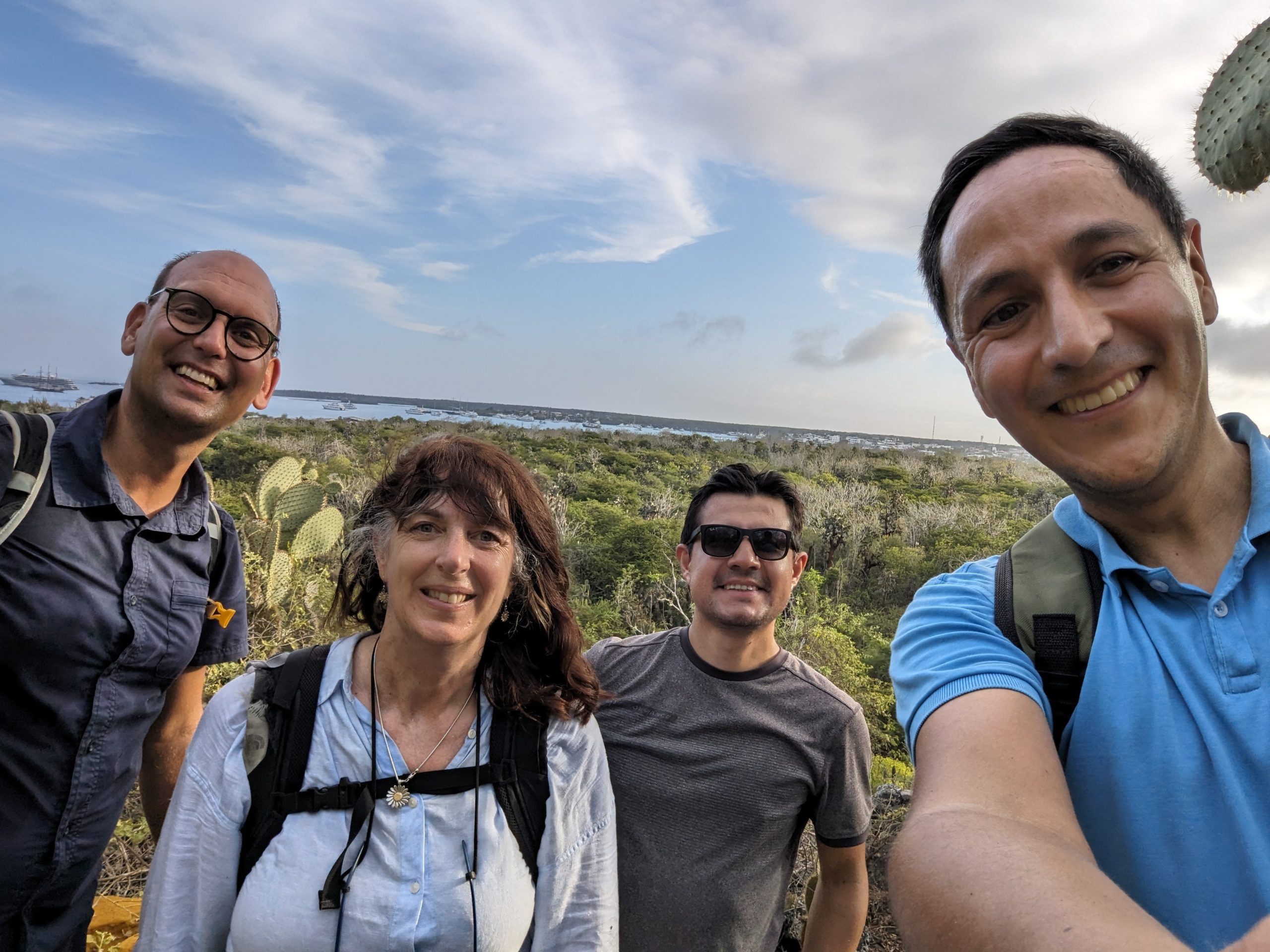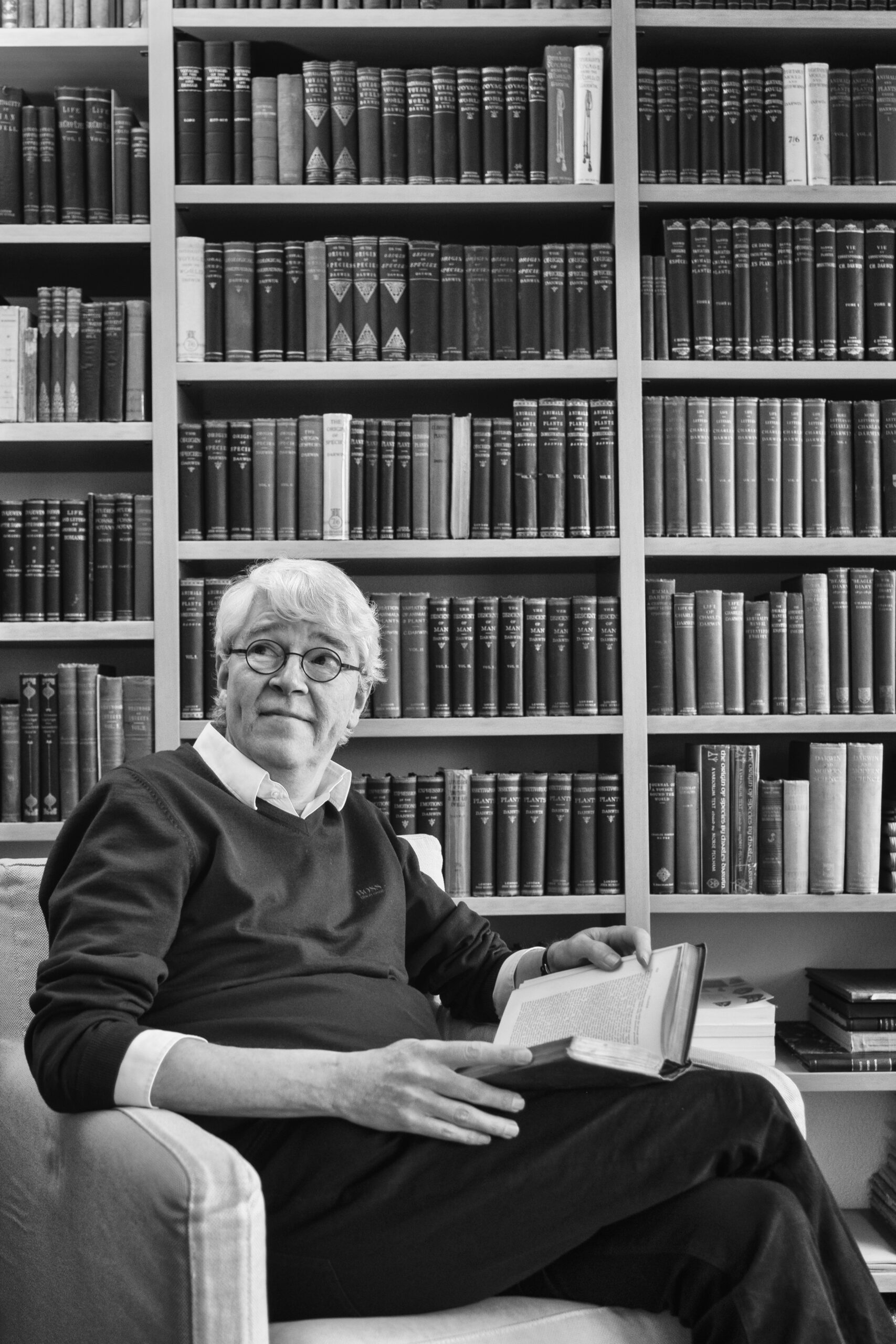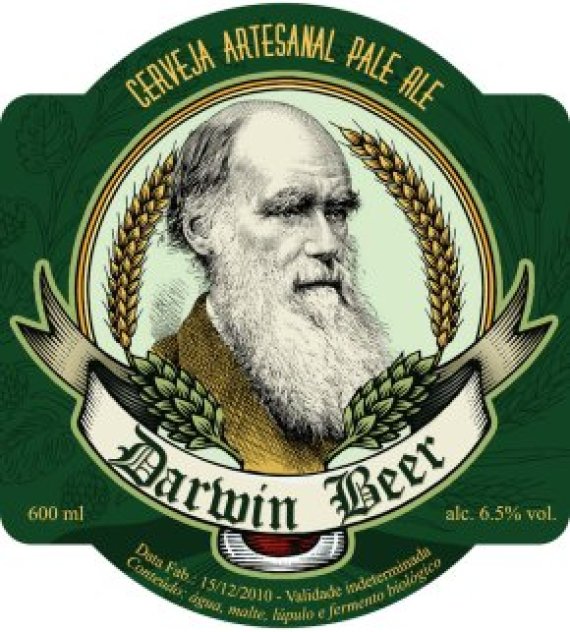Over the past four decades, Caroline van der Mark visited the Galapagos Islands on numerous occasions as a guide for the travel agency SNP. Last year was her last visit because she can no longer bear the impact mass tourism has. ‘I had expected a decrease after the COVID pandemic. What a deception. I told SNP: ‘We should stop doing this. It is not good for the islands, nor for our participants.’
Van der Mark is the primary guest at the seventh Darwin Café, which will take place in Wageningen’s City Brewery (Stadsbrouwerij) on Wednesday, 12 February. The date marks the 216th anniversary of Darwin’s birth. As a young researcher (26), the father of evolutionary science set foot on the Galapagos Islands, a spot that has been inextricably linked to his name ever since. The diversity in the local finch populations, each of which has adapted to its own island, sowed the seed for evolutionary science.
Homesick
As an adolescent, Van der Mark was already intrigued by the story of the Galapagos Islands. ‘It more or less motivated my choice to study biology’, she says. She pursued her degree in Wageningen. After her internship in Bonaire, she visited the islands for the first time in 1982. It became somewhat of an addiction. ‘I had left the islands less than a week before homesickness set in. I love the sea, the vastness and the absence of noise and crowds. I am passionate about the wildness of the Galapagos Islands.’
Two years later, having graduated, she returned. As a guide for an Ecuadorian organisation this time. She practically lived on a ship for two years, cruising along fixed routes. ‘The Galapagos is made up of some sixty islands, fifteen of which are sizeable. The largest is about four times the size of Texel’, Van der Mark explains. ‘The islands are spread across an area roughly the size of the Netherlands. Only three per cent of the islands can be visited.’
She calls her time as a guide ‘the best gift life has given me’. ‘There, my connection with nature and the outdoors became very strong.’ Mass tourism did not yet exist at the time. Circumstances were unfavourable. ‘It is out of the way and expensive. The water is cold, and the beaches are made up of volcanic sand, which is black, red, or brown, and void of palm trees. The landscape is rough and unforgiving. But it is fascinating, especially if you are interested in evolution.’
More species
That first two-year stint led to a new challenge when SNP asked Van der Mark to organise a trip to The Galapagos in 1999. ‘People were becoming richer and wanted to travel further.’ Since then, she has visited the islands annually and seen the situation there deteriorate. ‘When I started out as a guide, there were 1000 species of flora on the islands. Now, there are 1600 species. All exotic, invasive species that have been brought in from elsewhere. The number of insect species has increased from 400 to 1200.’
‘When I started, some 40 thousand tourists visited the islands each year. Last year, that number increased to 330 thousand, Van der Mark continues. ‘The narrow trails of the past have been trampled into wide lanes. As a tourist, you no longer find yourself on an untouched island, but you follow in the footsteps of hundreds of thousands who have come before you. It is not just the experience that has deteriorated; so has nature. Where there used to be breeding colonies, I now see none. Food and beverages for all these people must be imported. Potable water is a major issue, and trash keeps piling up.’
Magical place
‘This may sound bitter, but it needs to be said’, she states. Still, the Galapagos Islands remain a magical place, according to Van der Meer. On the occasion of his birthday, she will show how Darwin found the islands at the time. ‘There are still many spots that remain undisturbed. I will show slides of the animals, plants and landscapes in the four places where Darwin came ashore. Since his journals can be found online, his steps can be retraced.’
Darwin expert Gert van Maanen will introduce Van der Mark; Van Maanen is the initiator of the café and editor-in-chief of BioNieuws. He visited the Galapagos Islands last year as part of the Darwin200 Global Voyage, an expedition to follow in Darwin’s footsteps. The trip, which started in Plymouth two years ago, ends in Falmouth in July.
Darwin Café 2025, Rad van Wageningen (1ste Kloostersteeg 3) on Wednesday, 12 February. Entry is free. Drinks are compulsory. For more, see www.facebook.com/DarwinCafe.

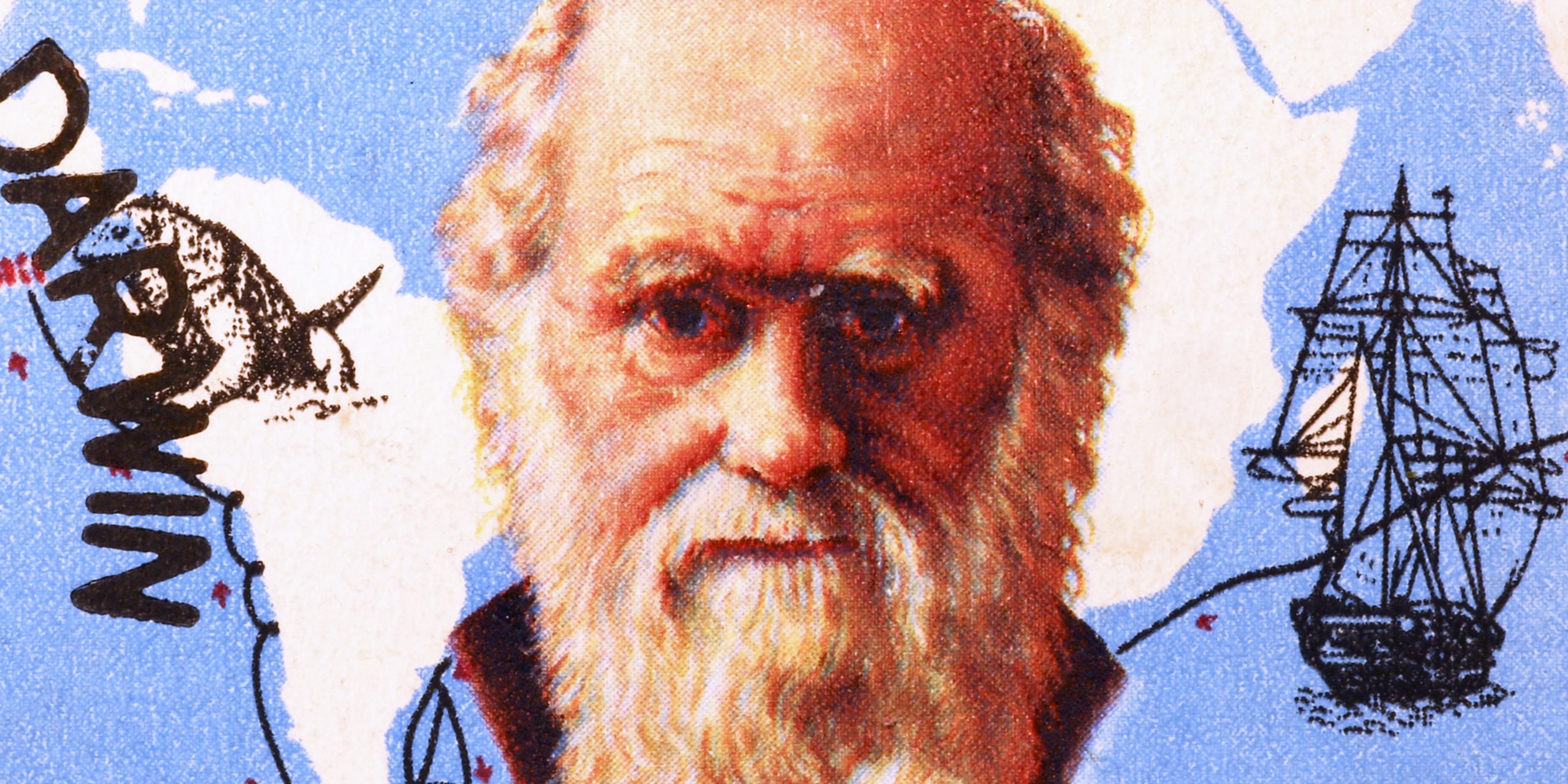 Illustration Shutterstock
Illustration Shutterstock 